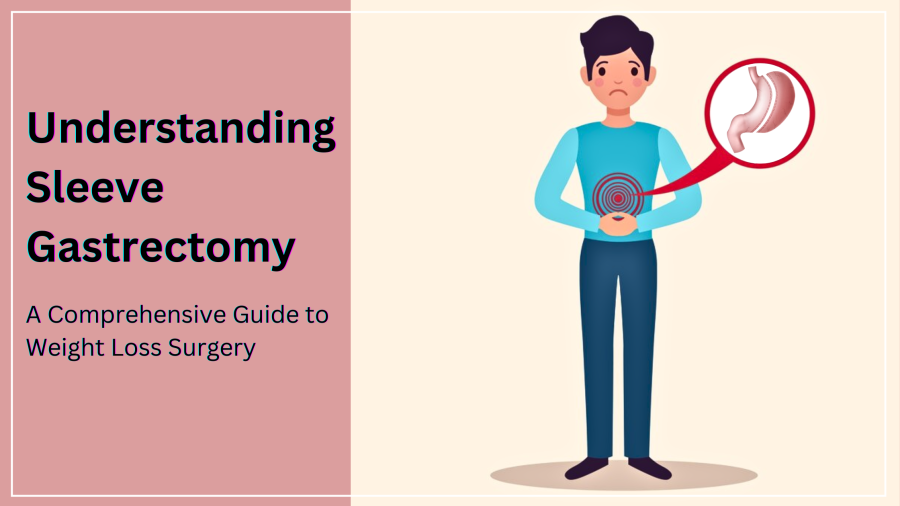Sleeve gastrectomy has gained recognition as a highly effective bariatric surgery for individuals struggling with obesity and related health conditions. This surgical procedure, also known as gastric sleeve surgery, involves removing a large portion of the stomach to limit food intake and promote weight loss. For those considering weight loss surgery, understanding the nuances of sleeve gastrectomy is crucial. This guide delves into every aspect of sleeve gastrectomy, from the procedure itself to the benefits, risks, and how to choose the right surgeon.
What is Sleeve Gastrectomy?
Definition and Explanation
Gastric sleeve surgery, also known as a sleeve gastrectomy, involves removing between 75 and 80 percent of the stomach, leaving behind a tube-shaped or “sleeve” stomach. This reduction in stomach size significantly limits food intake and decreases the production of the hunger hormone ghrelin, aiding in weight loss.
Comparison with Other Bariatric Surgeries
- Gastric Bypass: Unlike gastric bypass, sleeve gastrectomy does not involve rerouting the intestines, making it a less complex procedure.
- Gastric Banding: Sleeve gastrectomy offers more substantial and sustained weight loss compared to adjustable gastric banding.
Surgical Process
- Laparoscopic Surgery: With tiny incisions and a camera for guiding, laparoscopic surgery is used to perform the majority of sleeve gastrectomies.
- Robotic Sleeve Gastrectomy: Some surgeons use robotic systems to enhance precision and control during the procedure.
Benefits of Sleeve Gastrectomy
Significant Weight Loss Outcomes
- Rapid Weight Loss: Patients typically lose 50-70% of their excess weight within the first year.
- Long-Term Success: Many maintain substantial weight loss long-term with proper diet and lifestyle changes.
Improvement in Health Conditions
- Type 2 Diabetes: High rates of remission or improvement post-surgery.
- Hypertension: Significant reduction in blood pressure levels.
- Sleep Apnea: Improved sleep quality due to reduced symptoms.
Enhanced Metabolic Health
- Cardiovascular Health: Improved cholesterol levels and a lower chance of heart disease are signs of cardiovascular health.
- Insulin Sensitivity: Enhanced metabolic function and better management of blood sugar levels.
Risks and Considerations
Common Risks and Complications
- Surgical Risks: Surgical risks include bleeding, infection, and anesthesia-related side effects.
- Digestive Issues: Some patients may experience acid reflux or gastrointestinal discomfort.
Potential Long-Term Effects Sleeve Gastrectomy
- Nutritional Deficiencies: Risk of deficiencies in vitamins and minerals such as B12, iron, and calcium.
- Regular Monitoring: Lifelong commitment to dietary supplements and regular check-ups is essential.
Importance of Discussing Risks with a Surgeon
- Consultation: Discuss potential risks and benefits with a qualified sleeve gastrectomy surgeon to understand how they apply to your specific case.
Eligibility and Candidacy
Criteria for Sleeve Gastrectomy Surgery
- BMI Requirements: Generally recommended for individuals with a BMI of 40 or higher, or 35 or higher with obesity-related health conditions.
- Health Conditions: Best suited for people with severe sleep apnea, hypertension, or type 2 diabetes.
Factors Influencing Candidacy
- Medical Evaluation: Comprehensive medical evaluation to assess overall health and suitability.
- Psychological Assessment: Psychological readiness and understanding of lifestyle changes required post-surgery.
Importance of Medical and Psychological Evaluations
- Holistic Assessment: Ensures that candidates are well-prepared and can commit to the necessary lifestyle changes for successful outcomes.
Choosing a Qualified Surgeon and Facility
Tips for Selecting a Surgeon
- Experience and Credentials: Look for a surgeon with extensive experience in performing sleeve gastrectomy surgeries.
- Patient Reviews: Read reviews and testimonials from previous patients to gauge satisfaction and outcomes.
Factors to Consider in a Facility
- Accreditation: Choose a facility accredited by recognized health organizations.
- Comprehensive Care: Opt for facilities that offer comprehensive pre-and post-surgery care, including nutritional and psychological support.
Options for Sleeve Gastrectomy Surgery
- Medical Tourism: Countries like India are known for providing high-quality bariatric surgery at competitive prices.
- Major Cities: Look for reputable surgeons and facilities in major cities known for advanced medical care.
Frequently Asked Questions
Recovery Time
- Initial Recovery: In 2-4 weeks, the majority of patients are able to resume their regular activities.
- Full Recovery: Complete recovery and adjustment to new eating habits may take a few months.
Expected Weight Loss
- Short-Term: Notable weight loss within the first six to twelve months.
- Long-Term: Maintenance of 50-70% of excess weight loss over five years.
Post-Surgery Diet
- Immediate Post-Surgery: Liquid diet transitioning to pureed foods.
- Long-Term: Balanced diet with a focus on protein, vitamins, and minerals, avoiding high-sugar and high-fat foods.
Long-Term Outcomes
- Sustained Weight Loss: Many patients maintain their weight loss long-term with proper diet and lifestyle.
- Health Improvements: Continued improvement in obesity-related health conditions and overall quality of life.
Also Read: What Are The Main Causes Ohttps://bouncernews.com/what-are-the-main-causes-of-acne-know-here/f Acne?
Conclusion: Making an Informed Decision
Sleeve gastrectomy offers a viable solution for those struggling with severe obesity and related health conditions. By understanding the procedure, benefits, risks, and eligibility criteria, you can make an informed decision about whether this surgery is right for you. Consulting with a qualified sleeve gastrectomy surgeon will provide personalized insights and help you embark on a successful weight loss journey.
References and Further Reading
- “Sleeve Gastrectomy Surgery: Procedure and Outcomes,” [by Healthline]
- “Comparing Bariatric Surgeries,” [by American Society for Metabolic and Bariatric Surgery]
- “Long-Term Effects of Sleeve Gastrectomy Surgery,” [by Journal of Obesity and Metabolic Surgery]
This comprehensive guide aims to provide valuable insights and assist you in making an informed decision about sleeve gastrectomy surgery. For further information, consult with a healthcare professional or bariatric surgeon.

